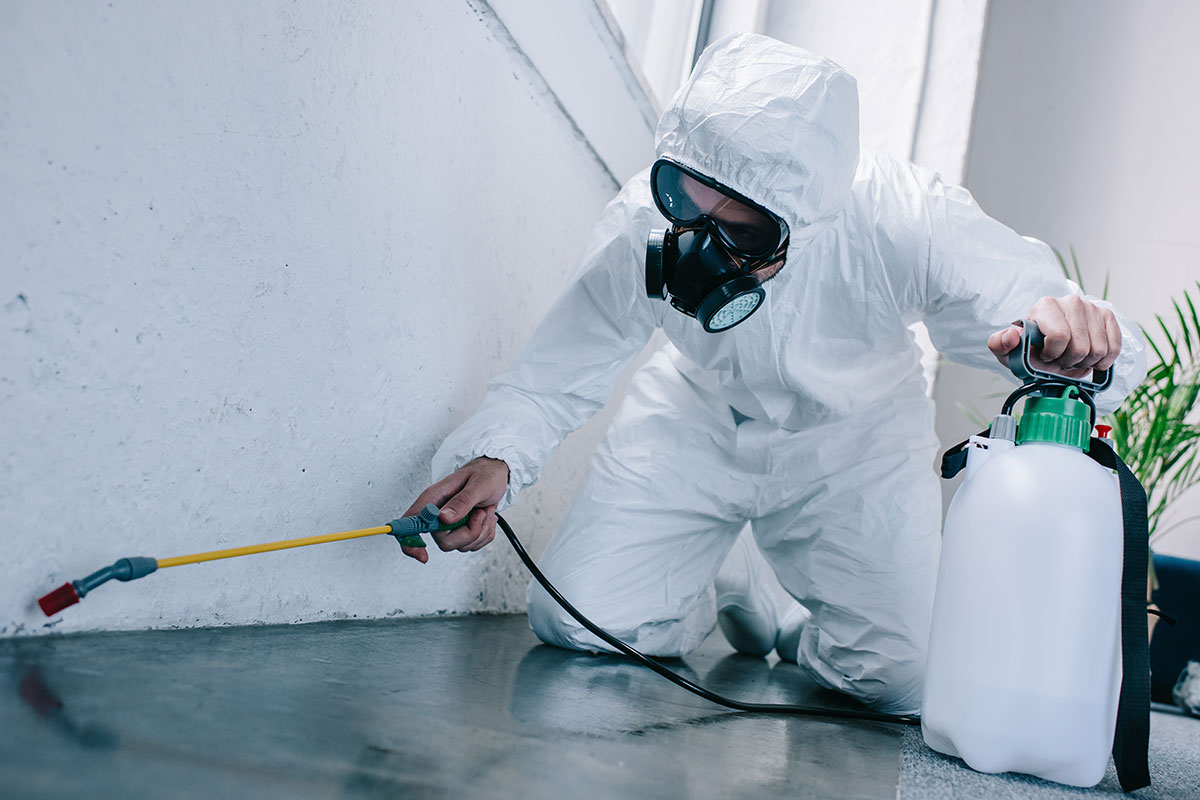Understanding Different Sorts Of Bug Control Methods and Their Efficiency
When considering pest control techniques, it is necessary to recognize the diverse methods offered and their varying degrees of efficiency. By exploring the subtleties of these insect control strategies, a comprehensive understanding of how to attend to pest concerns can be established.
Chemical Parasite Control Methods
Chemical pest control approaches play a critical role in successfully managing and removing pest problems in numerous atmospheres. These approaches include making use of chemical materials to get rid of or prevent insects such as bugs, weeds, and rats. One of the key advantages of chemical bug control is its capacity to give fast and targeted remedies to pest troubles. By utilizing particular chemicals that are designed to target specific parasites, this approach can assist prevent damage to plants, structures, and human wellness.
Nevertheless, it is necessary to take into consideration the potential threats and downsides linked with chemical pest control methods. Overreliance on chemicals can cause the advancement of pesticide resistance in pests, making them harder to regulate in the future. Additionally, using specific chemicals can have hazardous results on non-target microorganisms, the environment, and human wellness if not used appropriately.

Biological Bug Control Approaches
Making use of natural killers and microorganisms to take care of pest populations efficiently, organic parasite control methods provide a sustainable and environmentally friendly strategy to pest management. By presenting or advertising the task of organisms that normally victimize or contaminate bugs, such as ladybugs for aphid control or certain bacteria for caterpillar invasions, biological control can assist keep pest populations at convenient degrees without the demand for synthetic chemicals. This method is especially beneficial for chemical-free farming methods, as it avoids using possibly dangerous compounds while keeping plant health and wellness.

Physical Pest Control Approaches
While biological parasite control techniques concentrate on harnessing natural killers and virus, physical bug control techniques utilize physical and mechanical barriers to manage parasite populaces. These techniques are typically considered environmentally pleasant as they decrease the use of chemicals. Physical insect control includes strategies such as capturing, using obstacles like webs or screens, and physically removing insects from the area.
Traps are frequently used in physical pest control to record and eliminate pests like rats and pests. An additional physical method is the usage of obstacles such as fencings, nets, or displays to prevent bugs from getting in or infesting certain locations.
All-natural Pest Control Approaches
Integrating plant-based repellents and natural killers is a crucial method in carrying out reliable all-natural insect control approaches. By urging the existence of advantageous pests like ladybugs, lacewings, or aggressive termites, garden enthusiasts can naturally control pest populations. These killers feed on common garden insects such as aphids, caterpillars, and mites, aiding to preserve a balanced ecosystem without the requirement for chemical treatments.

In addition, applying social techniques such as plant turning, buddy planting, and keeping appropriate check these guys out plant health can also enhance the performance of natural bug control methods. These methods not only help in avoiding insect invasions but additionally advertise biodiversity and total ecosystem strength. By incorporating these natural approaches, people can effectively handle bugs while lessening environmental effect.
Integrated Pest Monitoring (IPM) Strategy
Executing an Integrated Insect Monitoring (IPM) strategy is important for successfully controlling insect populaces while minimizing dependence on chemical pesticides. IPM is a sustainable and thorough approach that combines numerous insect control techniques to accomplish lasting solutions. This approach have a peek at this website concentrates on tracking, control, and prevention to resolve parasite problems in an eco-friendly manner.
IPM integrates biological, cultural, physical, and mechanical methods with the limited and critical usage of chemicals when necessary. By highlighting aggressive actions such as environment modification, biological control, and exclusion, IPM intends to decrease parasite populations and their effect on the ecological community. Normal tracking is vital in IPM to analyze bug levels properly and establish one of the most proper control approaches.
One of the vital benefits of IPM is its capacity to lessen the dangers connected with excessive chemical use, such as environmental contamination and harm to non-target organisms. Furthermore, IPM advertises an extra alternative method to pest management by considering the overall environment dynamics. On the whole, the IPM technique provides a effective and sustainable remedy for bug control while advertising environmental obligation.
Final Thought
To conclude, recognizing the different kinds of parasite control approaches and their performance is essential in effectively taking care of pest problems. Chemical, biological, physical, and all-natural pest control techniques each have their own advantages and constraints. Integrated Bug Management (IPM) strategy, which integrates numerous approaches for lasting insect control, is significantly being acknowledged as a all natural and eco friendly option. By utilizing a mix of these companies, individuals and techniques can properly control bugs while lessening harm to the environment.
Chemical pest control methods play a pivotal role in properly taking care of and eradicating pest problems in numerous settings.Making use of natural killers and virus to take care of insect populaces properly, organic pest control methods use a eco-friendly and sustainable method to pest administration. By promoting the task or introducing of organisms that normally prey on or contaminate pests, such as ladybugs for aphid control or certain microorganisms for caterpillar problems, organic control can aid maintain bug populations at workable degrees without the demand for artificial chemicals.While organic pest control methods focus on utilizing all-natural killers and virus, physical bug control approaches utilize mechanical and physical obstacles to take care of insect populations. Integrated Bug Administration (IPM) approach, which integrates different approaches for lasting pest control, is progressively being identified as a alternative and environmentally pleasant option.